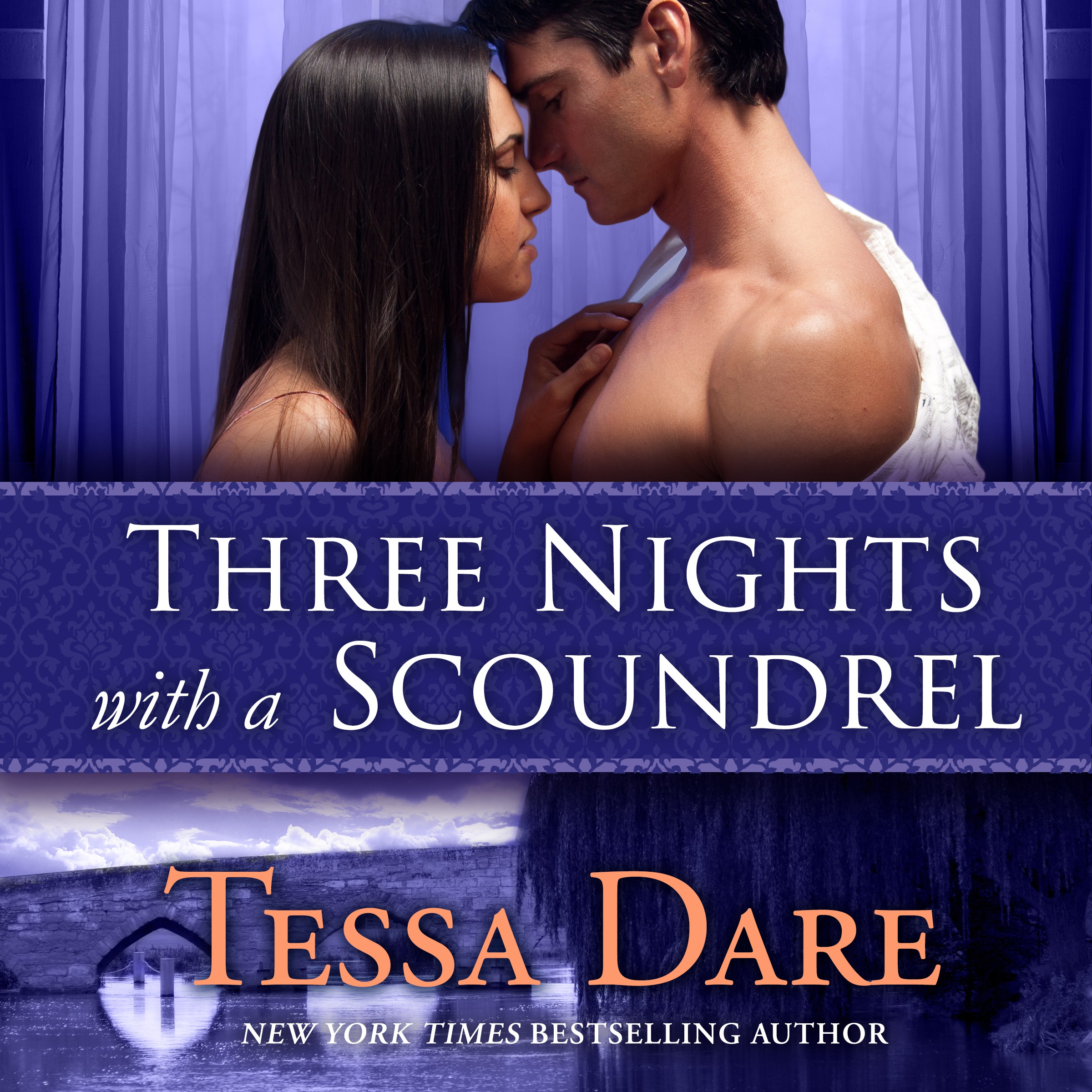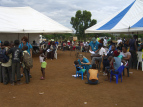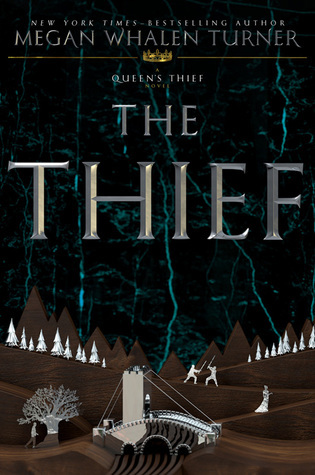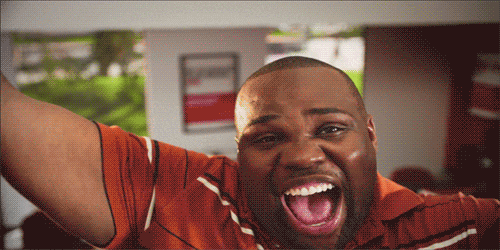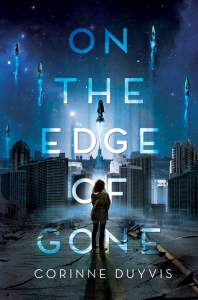 Description: (from Corinne Duyvis’s website)
Description: (from Corinne Duyvis’s website)
January 29, 2035. That’s the day the comet is scheduled to hit—the big one.
Denise and her mother and sister, Iris, have been assigned to a temporary shelter near their hometown of Amsterdam to wait out the blast, but Iris is nowhere to be found, and at the rate Denise’s addicted mother is going, they’ll never reach the shelter in time.
Then a last-minute encounter leads them to something better than a temporary shelter: a generation ship that’s scheduled to leave Earth behind and colonize new worlds after the comet hits. But each passenger must have a practical skill to contribute. Denise is autistic and fears that she’ll never be allowed to stay. Can she obtain a spot before the ship takes flight? What about her mother and sister?
When the future of the human race is at stake, whose lives matter most?
Another book I got for Christmas! I almost bought it back in November because there was an author saying awful things about autistic children and this book was recommended a lot by people who condemned what that author was saying. Since I hadn’t the money at the time, I put it on my Christmas wish-list and was super happy to find it under the tree ❤
 So I first wanted to read this book because it is an #ownvoices science fiction novel with an autistic main character. The only other book I can remember reading with a main character on the autism spectrum was The Curious Incident of the Dog in the Night-Time and when I was younger it was one of my favourite book. But I don’t really know what people on the spectrum think about it.
So I first wanted to read this book because it is an #ownvoices science fiction novel with an autistic main character. The only other book I can remember reading with a main character on the autism spectrum was The Curious Incident of the Dog in the Night-Time and when I was younger it was one of my favourite book. But I don’t really know what people on the spectrum think about it.
“Whether someone is useful only matters if you value people by their use.”
The main character, Denise, is a biracial girl on the autism spectrum. Her white mom is a drug addict and here it is portrayed as an illness which is one of the only time I’ve seen it portrayed like this, which I appreciate. Her sister, Ines, is the person Denise loves more than anyone and anything. Ines is missing when the story starts and that’s one of the thing that will push Denise forward and motivate her for most of her decisions.
“At the time, I thought the diagnosis was delayed because I was bad at being autistic, the same way I was bad at everything else; it took me years to realize that since I wasn’t only Black, but a Black girl, it’s like the DSM shrank to a handful of options, and many psychologists were loath to even consider those.”
On the edge of gone is a story about choices. What is best for you might not be the same thing for others, and in the end choices are the only thing left. That is something Denise will have a hard time understanding and her struggle is also difficult for the reader to witness. She usually struggles to interact with people but here, on a post-apocalyptic world, it is even harder. But her situation is so unprecedented that we can’t know what we would have done different than her.
The pacing was unusual, quite slow-paced I would say. There were not really a lot of things happening but I was still eager to turn each page and I was pulled to know what would happen next, to know when she would finally be safe. I was rooting for all the characters, hoping everything would be alright for them all in the end. Every character comes alive and that’s really something that makes me want to pick up other books by Corinne Duyvis.
“Maybe Americans are used to this, having seen their cities destroyed a dozen times on film. I’ve just never seen it happen to my airport.”
 I really liked the time I spent reading this book, understanding Denise better and her reactions to things that another protagonist would have had no (or less) problem with. I am glad we are seeing more books with different narratives. Neuro-divergent people can be heroes as much as anyone else and I am happy I could witness Denise be such a hero.
I really liked the time I spent reading this book, understanding Denise better and her reactions to things that another protagonist would have had no (or less) problem with. I am glad we are seeing more books with different narratives. Neuro-divergent people can be heroes as much as anyone else and I am happy I could witness Denise be such a hero.
Another thing that I liked is that this book is set in the Netherlands which is a big change to all the US/UK stories we usually find in young adults novels.
Overall I’d say this is not really a book I’d recommend for the action or the adventures but mostly for its humane tone and all the different perspectives it gives us, with characters from all ages, background and good representation of LGBTQ+ characters.
“I look at the sky and the dust that separates us from the stars that will be my home. I breathe in the night air, the rotten night air, and I miss,
I miss,
I miss.”
I found this short detailed-review of the book by the author and I thought that it added some more interesting details that I hadn’t thought about adding into my review:
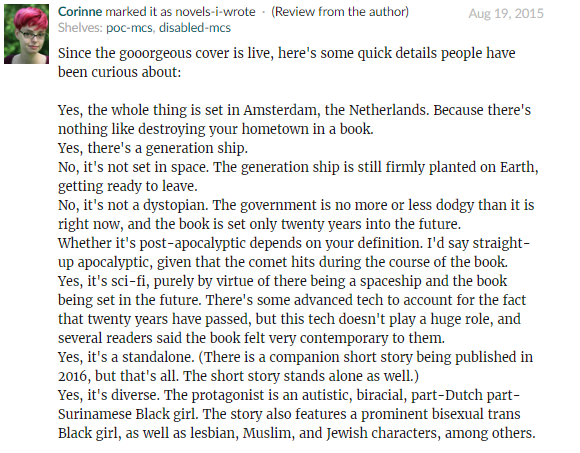 link
link
I would love to read more SFF books with a main character being on the autistic spectrum, any recommendation?
Advertisements Partager :
